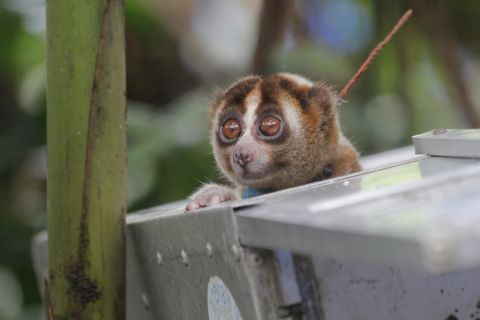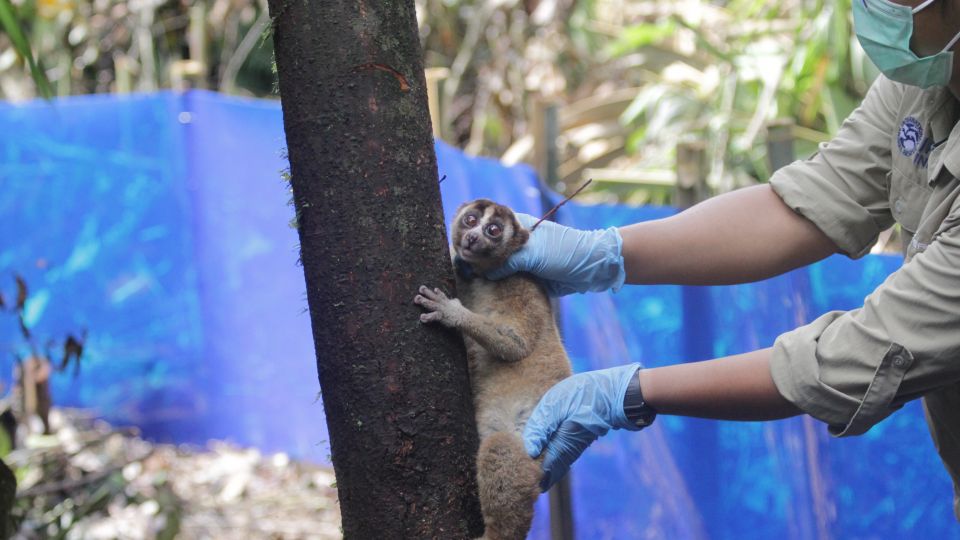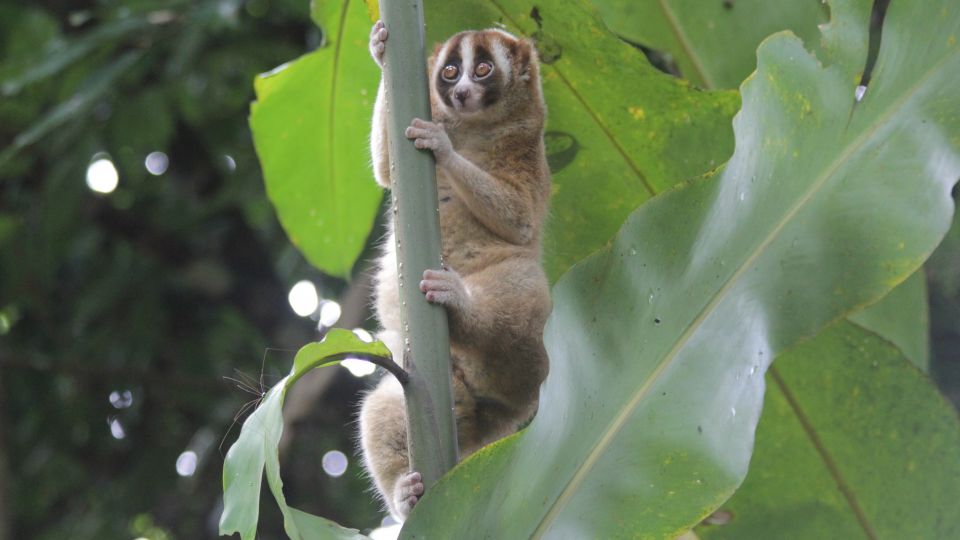
Thirty-one Javan slow lorises that have undergone treatment and rehabilitation at our Primate Rehabilitation Centre in Bogor, West Java, are now ready to be released back to their natural habitat in Gunung Sawal Wildlife Reserve (SMGS) and the Conservation Forest Masigit-Kareumbi, Bandung, West Java. They are currently undergoing a habitat habituation process before their complete release into the wild.One of our vets, Indri Saptorini revealed that the 31 lorises consist of 17 males and 14 females. They were translocated from our Rehabilitation Centre at the foot of Mount Salak, Bogor, West Java, to the SMGS and the Masigit-Kareumbi Conservation Forest on the night of Thursday 2 May.
“Most of them are slow lorises handed over by the people to a number of Forestry Department (BKSDA) offices in the West Java Region and were passed on into our care to undergo rehabilitation. Now the slow lorises are in good condition and ready to return to the wild after going through a series of treatments and recovery,” Indri explained.

The steps to restore their natural behaviour start with quarantine and medical examinations to ensure that the lorises are free from diseases. Indri added that they must then undergo a long process to restore their natural behaviour. When they first arrive at the centre, the lorises’ condition is generally quite worrying. They are usually suffering from stress, trauma, malnutrition and behavioural changes because in captivity their physical and psychological needs as wild primates have not been met.
After undergoing the rehabilitation period, these endemic Javan primates are then translocated to the habituation site. The habituation enclosure is open forest surrounded by nets. Within it, there are various types of trees for natural food and shade for the slow lorises. The lorises are left for between two and four weeks to adapt and get to know their new environment.
“While undergoing habituation, the team in the field will continue to observe and record the behavioural development of these nocturnal primates every night. If during the habituation period all the lorises are active and there is no abnormal behaviour, then they can truly be released into the wild,” he added.

Ammy Nurwati, Head of the Centre for Natural Resources Conservation (BBKSDA) West Java, said that the Javan slow loris protection and conservation programme in the West Java region is a collaboration between West Java BBKSDA and IAR Indonesia.
“This programme is one of our efforts to support the sustainability of the ecological processes in the region, and to maintain and increase the population of primate species as endemic animals whose numbers are currently in decline,” he said.
Ammy explained that the two conservation areas have ecosystems that are considered suitable as a place of preservation and protection for slow loris populations in West Java. This was also supported by the results of a survey and study by our team with BBKSDA West Java which revealed that the area has good potential in terms of regional security, availability of food and shade, habitat carrying capacity and the level of threat of predators.
“So we all hope that with this release, they can breed and live their lives well. In addition, this programme belongs not only to the IAR and BBKSDA teams, we also involve local communities around the area in each stage of this slow loris conservation programme, starting from translocation to monitoring. This involvement means that they can preserve and protect the slow lorises in their habitat from various threats,” he concluded.

